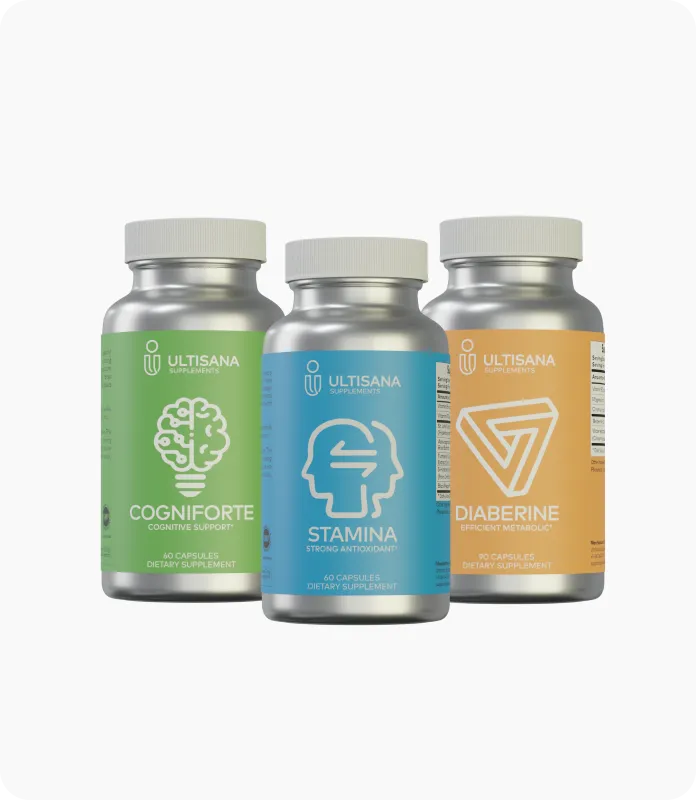Ginkgo Biloba, one of the oldest living tree species in the world, has been revered for its potential health benefits for centuries. From traditional medicine in China to modern-day wellness practices, this fascinating plant has made its mark. Known for its unique fan-shaped leaves and distinct smell, Ginkgo Biloba is more than just a beautiful tree, it’s a natural powerhouse with a wide array of health benefits.
In this comprehensive guide, we will dive deep into the world of Ginkgo Biloba. Whether you’re interested in learning about its history, exploring its health benefits, or figuring out how to incorporate it into your wellness routine, this article will provide you with all the information you need.
What is Ginkgo Biloba?
Ginkgo Biloba is a deciduous tree native to China, recognized for its unique fan-shaped leaves and its ability to withstand harsh climates. The tree is often called a “living fossil,” as it has remained largely unchanged for over 200 million years. Ginkgo is one of the few remaining species of the Ginkgoaceae family, making it a true botanical relic.
The leaves of the Ginkgo tree are the primary part of the plant used for medicinal purposes. They are harvested, dried, and processed to create extracts, which are commonly found in supplements, teas, and topical products.
History
Ginkgo Biloba has a rich history that dates back thousands of years. It was first used in traditional Chinese medicine to improve circulation, treat various ailments, and enhance overall vitality. Ginkgo trees are so revered in China that they are often planted near temples and other sacred places, symbolizing longevity and resilience.
Over time, Ginkgo made its way to other parts of the world, where it gained popularity for its potential health benefits. Today, Ginkgo Biloba is widely used in the form of supplements to support cognitive health, circulation, and overall well-being.
The Health Benefits of Ginkgo Biloba
Ginkgo Biloba is celebrated for its numerous health benefits, many of which are backed by scientific research. Let’s explore some of the most well-known benefits:
1. Improved Cognitive Function
One of the most popular uses of Ginkgo Biloba is to support brain health. Studies suggest that Ginkgo Biloba may enhance cognitive function, improve memory, and even slow down the progression of neurodegenerative diseases such as Alzheimer’s.
The active compounds in Ginkgo Biloba, such as flavonoids and terpenoids, are believed to increase blood flow to the brain, which may help improve brain function. By boosting circulation, Ginkgo Biloba may also increase the delivery of oxygen and nutrients to brain cells, supporting overall cognitive performance.
2. Enhanced Memory and Focus
Ginkgo Biloba has been widely studied for its ability to improve memory and focus. It is often used as a natural remedy for memory lapses, especially among older adults. Some research suggests that Ginkgo Biloba may help improve working memory, which is the ability to hold and manipulate information in the short term.
While results may vary, many people report improved mental clarity, focus, and concentration when taking Ginkgo Biloba supplements regularly.
3. Mood Support
Ginkgo Biloba is sometimes used as a natural remedy for anxiety and depression. It is thought to promote a sense of calm and balance by regulating the levels of certain neurotransmitters, such as serotonin and dopamine, in the brain.
While more research is needed to fully understand the effects of Ginkgo Biloba on mood disorders, many people have found it helpful in reducing symptoms of anxiety and depression, particularly when combined with other mood-boosting practices like exercise and mindfulness.
4. Improved Circulation
Ginkgo Biloba is known for its ability to enhance circulation throughout the body. The active compounds in Ginkgo Biloba may help dilate blood vessels and reduce blood viscosity, making it easier for blood to flow throughout the body.
Improved circulation can benefit various organs, including the heart and brain, and may help reduce the risk of cardiovascular problems. Some studies have shown that Ginkgo Biloba can help lower blood pressure and improve overall cardiovascular health.
5. Antioxidant Properties
Ginkgo Biloba is rich in antioxidants, which help protect cells from oxidative stress caused by free radicals. Free radicals are unstable molecules that can damage cells, contributing to aging and the development of chronic diseases like cancer and heart disease.
By neutralizing free radicals, Ginkgo Biloba may help protect against cellular damage and promote healthy aging. The antioxidants in Ginkgo Biloba may also support the immune system, making it a valuable addition to your overall wellness routine.
6. Eye Health
Ginkgo Biloba has been studied for its potential benefits for eye health. It is thought to improve blood flow to the eyes, which may help reduce the risk of age-related macular degeneration (AMD) and glaucoma. Additionally, Ginkgo Biloba’s antioxidant properties may help protect the delicate cells of the eyes from oxidative damage.
Some studies suggest that Ginkgo Biloba may also be helpful in improving vision in people with diabetic retinopathy, a condition caused by damage to the blood vessels in the retina due to diabetes.
7. Tinnitus Relief
Tinnitus, or ringing in the ears, is a common condition that affects millions of people worldwide. Ginkgo Biloba has been traditionally used to relieve the symptoms of tinnitus by improving circulation to the ears and reducing the perception of ringing or buzzing sounds.
While research on the effectiveness of Ginkgo Biloba for tinnitus is still inconclusive, many individuals report experiencing relief from their symptoms after taking Ginkgo Biloba supplements.
How to Use Ginkgo Biloba
Ginkgo Biloba is available in a variety of forms, including:
- Capsules and Tablets: The most common form of Ginkgo Biloba supplements, typically containing concentrated extract from the leaves of the tree.
- Teas: Ginkgo Biloba tea is made by steeping dried leaves in hot water and can be enjoyed as a refreshing beverage.
- Liquid Extracts: Some people prefer to use Ginkgo Biloba in liquid form, which can be taken directly or added to water.
- Topical Creams and Ointments: Ginkgo Biloba extracts are sometimes included in skincare products, as its antioxidants can promote skin health and reduce inflammation.
Dosage & Safety
The recommended dosage of Ginkgo Biloba varies depending on the form and the reason for use. For cognitive support, a typical dose ranges from 120 to 240 mg per day, taken in divided doses. It’s important to follow the dosage instructions on the product label and consult with a healthcare provider before starting any new supplement, especially if you have a pre-existing medical condition or are taking other medications.
Ginkgo Biloba is generally considered safe for most people when used appropriately. However, it can cause side effects in some individuals, such as:
- Upset stomach
- Headaches
- Dizziness
- Allergic reactions (rare)
If you experience any adverse effects, discontinue use and consult a healthcare professional.
It’s also important to note that Ginkgo Biloba can interact with certain medications, including blood thinners, anti-seizure medications, and antidepressants. Always consult your doctor before starting Ginkgo Biloba, especially if you are taking prescription medication.
Potential Side Effects and Risks
Although Ginkgo Biloba is widely used and considered safe for most people, there are some potential risks and side effects to be aware of. These include:
- Bleeding Risks: Ginkgo Biloba can act as a blood thinner, increasing the risk of bleeding, especially if taken with other blood-thinning medications like aspirin or warfarin.
- Interaction with Medications: Ginkgo Biloba may interact with certain medications, including antidepressants, anticonvulsants, and blood pressure medications.
- Allergic Reactions: In rare cases, some individuals may experience allergic reactions to Ginkgo Biloba, including skin rashes or difficulty breathing.
If you experience any side effects or have concerns about potential interactions with other medications, it’s important to speak with your healthcare provider before using Ginkgo Biloba.
FAQs
-
What Is Ginkgo Biloba, And Where Does It Come From?
Ginkgo Biloba is an ancient tree species native to China, known for its unique fan-shaped leaves. It has been used in traditional medicine for centuries and is now widely used for its potential health benefits.
-
What Are The Main Health Benefits Of Ginkgo Biloba?
Ginkgo Biloba is believed to improve cognitive function, enhance memory, support circulation, promote eye health, and provide antioxidant protection. It is also used for mood support and tinnitus relief.
-
How Does Ginkgo Biloba Improve Memory And Focus?
Ginkgo Biloba is thought to increase blood flow to the brain, delivering more oxygen and nutrients to brain cells, which can enhance cognitive function and improve memory and concentration.
-
Can Ginkgo Biloba Help With Anxiety Or Depression?
Some studies suggest that Ginkgo Biloba may help improve mood by regulating neurotransmitters like serotonin and dopamine, but more research is needed to confirm its effectiveness for treating anxiety or depression.
-
Is Ginkgo Biloba Safe For Everyone To Use?
Ginkgo Biloba is generally safe for most people, but it can interact with certain medications, such as blood thinners, and cause side effects like headaches, dizziness, or digestive issues. Always consult a Healthcare provider before starting a supplement.
-
What Form Of Ginkgo Biloba Is The Most Effective?
Ginkgo Biloba is available in various forms, including capsules, tablets, teas, liquid extracts, and topical creams. Capsules and tablets with standardized extracts are the most common and effective form for achieving therapeutic benefits.
-
How Much Ginkgo Biloba Should I Take Per Day?
The typical recommended dose of Ginkgo Biloba is between 120 to 240 mg per day, divided into two or three doses. However, the exact dosage depends on the product and the reason for use. Always follow the dosage instructions on the product label.
-
Can Ginkgo Biloba Help With Vision Problems?
Yes, Ginkgo Biloba may improve circulation to the eyes and offer antioxidant protection, potentially reducing the risk of age-related eye conditions like macular degeneration and glaucoma.
-
What Are The Potential Side Effects Of Ginkgo Biloba?
Some potential side effects include headaches, digestive upset, dizziness, or allergic reactions. Ginkgo can also increase the risk of bleeding, especially if taken with blood-thinning medications.
-
How Long Does It Take For Ginkgo Biloba To Work?
The effects of Ginkgo Biloba may vary from person to person. But it typically takes 4 to 6 weeks of consistent use to start noticing its full benefits, especially for cognitive or memory-related issues.
Conclusion
Ginkgo Biloba is a fascinating and versatile plant that offers a wide range of health benefits, from supporting brain health to improving circulation and protecting against oxidative stress.
Whether you’re looking to boost your memory, improve your mood, or protect your vision, Ginkgo Biloba may be a valuable addition to your wellness routine.
However, as with any supplement, it’s essential to use it responsibly. Consult with a healthcare professional before adding it to your regimen, especially if you have existing health conditions or take medications.
If you’re considering trying it, be sure to choose high-quality supplements and use them as directed for the best results. As research continues to unfold, Ginkgo Biloba’s full range of benefits may become even more apparent, cementing its place as a natural powerhouse for overall well-being.
About Us
Ultisana Supplements is a family-owned wellness company focused on community and culture as key pillars of health. Our unique, natural formulas, trusted by doctors in Central America for years, are designed to target health concerns with respect for traditional remedies while being backed by science.

Our Products


